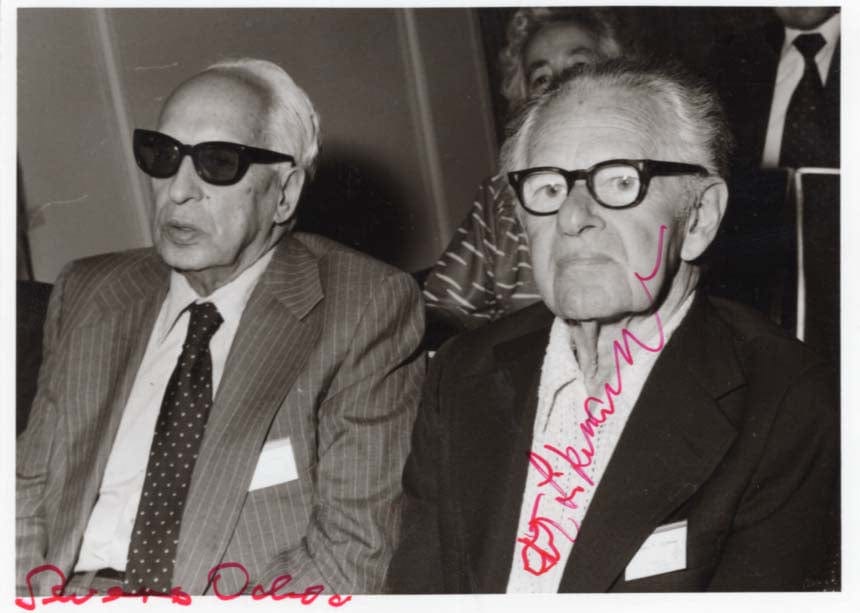Description
Further Information on the person
Profession:
(1905-1993, Ochoa) Spanish physician and biochemist, and joint winner of the 1959 Nobel Prize in Physiology or Medicine with Arthur Kornberg & (1899-1986, Lipmann) Biochemist and a co-discoverer in 1945 of coenzyme A. For this, together with other research on coenzyme A, he was awarded the Nobel Prize in Physiology or Medicine in 1953.
Year of Birth: 1905
Certificate of authenticity
All of our pieces are sold with a Certificate of Authenticity. If a piece turns out to be wrong or if you do not like an autograph, you will get your money back for a lifetime.
Payment & Security
Your payment information is processed securely. We do not store credit card details nor have access to your credit card information.

